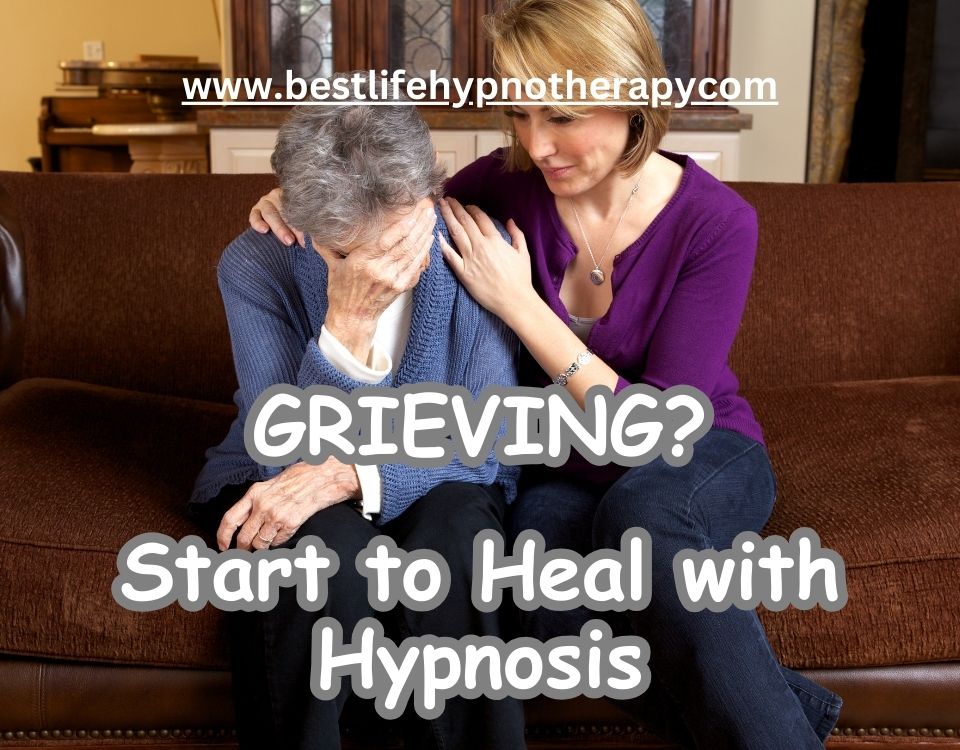
My mom passed away when I was just 17. At that age, I thought crying was a sign of weakness. I remember thinking, “I mean, so what? Doesn’t everyone die? What’s the big deal? I’ll get over it…” I convinced myself that I was strong enough to push through it, to move on without shedding too many tears.
But life has a funny way of showing you what you’ve buried deep down. Fast forward to my mid-20s: at my own wedding, I found myself sobbing uncontrollably. I was happy—there was no doubt about that—but the tears were pouring out, and I couldn’t understand why.
At 26, when I found out I was pregnant with my first child, instead of feeling pure joy, I felt this inexplicable sadness. I brushed it off, attributing it to the nerves and the unknowns of becoming a mother.

When my son was born, I felt devastated. I was convinced it was because I had to go back to work instead of staying home with my baby. I joined a support group for working mothers, hoping to find solace. And in that space, surrounded by women navigating the same challenges, it finally hit me: my sadness wasn’t about work or motherhood. It was about my mother. I was missing her in all the pivotal moments where I needed her the most—when I got married, when I found out I was expecting, and especially when I held my baby for the first time.
It took until I was 38 years old, feeling completely stuck in my life, to finally confront my grief head-on. I found a therapy program that helped me peel back the layers of my unresolved emotions. Little did I know, this program was, in essence, a form of group Neuro-Linguistic Programming (NLP) coaching. It helped me unravel the tightly wound ball of emotions I had been carrying for decades.
Grieving is a natural and necessary process. But it’s one we often resist because it’s uncomfortable, and society tends to pressure us to “move on” quickly. When we lose someone we love, our instinct can be to push the feelings away, to soldier on without really acknowledging the depth of our loss. That’s what I did at 17. I shoved it aside, thinking I was being strong. But grief has a way of resurfacing, especially in moments of major life transitions—getting married, having children, or facing new challenges.
In my practice as a Certified Hypnotherapist and Master NLP Coach, I often work with clients who, like me, thought they had moved on from their grief only to find it resurfacing years later. I have a special certification in Coping With Loss, and I’ve helped many people navigate the stages of grief to arrive at acceptance. Hypnotherapy is a powerful tool for this because it allows us to access the subconscious mind, where unresolved emotions are often stored. Through guided relaxation and focused inner work, clients can confront these buried feelings in a safe and supportive space.
NLP Coaching is equally effective in this process. It helps clients identify and reframe the limiting beliefs they may have about grief and loss. For instance, many people hold the subconscious belief that if they start crying, they’ll never stop—or that feeling sadness makes them weak.
But when we dig deeper, we find that allowing ourselves to grieve doesn’t weaken us; it frees us. It opens the door to healing.
Sometimes it’s just the opposite: that by holding onto sadness, it connects them with the one they have lost. Some people are reluctant to give up sadness because they believe deep down that it keeps them connected to the person who has died. Sometimes they even feel that it would be disrespectful and would mean they didn’t really love that person if they release the sadness.
Grief is very complex.
In one session, a client might realize that their sadness isn’t just about the loss of a loved one but about the future experiences they will never share with that person. It’s about missing their presence during life’s big milestones. Hypnotherapy and NLP help clients find a place for their loved ones to live within their hearts forever, keeping the wonderful memories while releasing the pain that holds them back.
As we grow older, the chances of losing someone we love become inevitable. And the more we try to sidestep grief, the more it affects us in unexpected ways—sometimes even years later. Seeking grief counseling, coaching, or joining a support group isn’t a luxury; it’s a necessity. It’s about giving yourself permission to feel the sadness, to mourn the loss, and to eventually make peace with it.
I’ve been there. I’ve felt the overwhelming wave of sadness hit me out of nowhere, years after the fact. And I’ve seen how transformative it can be when we finally allow ourselves to grieve. Today, as a hypnotherapist and NLP coach, I help others move through their grief, not around it, and find a way to carry their loved ones with them in a healthy, healing way.
Because at the end of the day, grieving doesn’t mean forgetting—it means remembering with love, without the weight of unresolved pain.
Jayne Goldman, MBA, C.Ht., is the Founder and Principal of Best Life Hypnotherapy in Los Angeles. She is a Certified Hypnotherapist, Master NLP Coach, and Master Time Line Therapy® Practitioner, specializing in helping clients navigate loss and find healing.